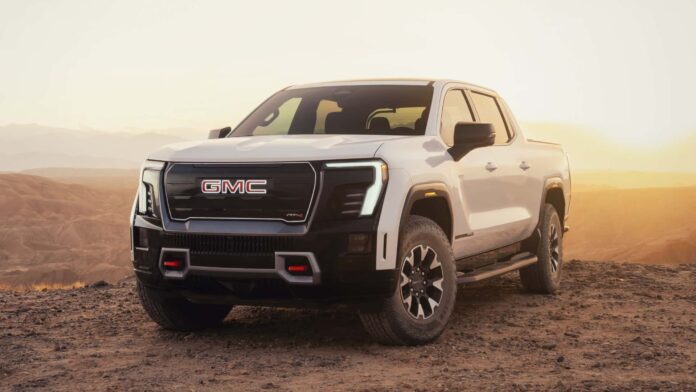
- General Motors’ main battery suppliers, LG Energy Solution and Samsung SDI, are working to bring lithium-iron-phosphate (LFP) battery production to the U.S.
- All GM EVs currently use a chemistry called nickel-manganese-cobalt-aluminum (NCMA), which tends to drive up costs.
- China dominates the LFP battery supply chain and has rapidly advanced the tech, which was invented and first developed in the U.S.
Electric vehicle battery production in the U.S. has long centered around the pricey nickel-manganese-cobalt (NMC) chemistry. But automakers are now shifting gears, moving toward cheaper lithium-iron phosphate (LFP) batteries to cut costs and make EVs more accessible to a broader audience.
General Motors especially is pressing ahead with alternative chemistries to lower the cost of its EVs. The Korea Economic Daily reported on Tuesday that GM’s two main battery suppliers—LG Energy Solution and Samsung SDI—are planning to bring LFP battery production to the U.S.
If they move fast enough, these could be the first LFP plants in the U.S., potentially beating Ford’s CATL-backed LFP factory in Michigan to the punch. That plant was initially supposed to start production in 2026, but after a delay and some political headwinds, the timeline is no longer clear.
Samsung SDI and GM’s $3.5 billion joint venture in New Carlisle, Indiana, is already set to start building prismatic cells by 2027. But now, Samsung SDI will retrofit part of the facility—originally designed for NMC cell production—to manufacture LFP cells. The company is already sourcing raw materials and equipment for the switch.
LG Energy Solution, GM’s primary battery supplier, is also looking to convert a section of its Ohio and Tennessee facilities into LFP manufacturing, according to the report. Currently, LGES makes NMC pouch and cylindrical cells and has eight battery plants in the U.S.—some of them are already up and running whereas others are nearing completion.
GM previously announced that the next-generation Bolt EV and a future trim of the Silverado EV will also get LFP packs. But as for other models, GM hasn’t said which ones will get LFP packs.
“Our EV strategy is focused on designing products that continue to lower cost, improve performance, and localize production,” a GM spokesperson told InsideEVs. “Battery technology is a key enabler of that strategy. We don’t comment on rumors,” he added.
Still, there’s a strong case for an LFP-equipped Chevy Equinox EV. It’s already the most affordable EV in the U.S. with over 300 miles of range. It starts at $33,600 before destination. For commuters who can live with that shorter range, an LFP version could slash thousands of dollars off the price, possibly dropping it below $25,000 with the tax credits factored in. Alternatively, if those credits disappear—the Trump administration is pushing hard to do that—the lower-cost battery could help GM stay competitive and cushion the blow of tariffs, especially since the Equinox EV is built in Mexico.
Photo by: Motor1.com
That said, current GM trucks and SUVs use nickel-manganese-cobalt-aluminum (NCMA) batteries. They’re an evolution of traditional NMC batteries with higher nickel content and a lower cobalt concentration. Even though these batteries offer superior energy density, they’re expensive and are part of the reason why EV trucks and SUVs tend to be pricier than their gas-powered counterparts. With an LFP battery, GM is expecting to save as much as $6,000 on the Silverado EV compared to NMC packs.
Several other EVs in the U.S. already use LFP packs, such as the entry-level Tesla Model 3 and Model Y, Ford Mustang Mach-E and the Rivian R1T and R1S in their dual-motor trims with the standard pack.
GM is also looking beyond NMC and LFP. It is working on a novel chemistry labeled lithium-manganese-rich (LMR), which uses less of the expensive nickel and cobalt content and dramatically increases the portion of manganese. GM will use LMR with a prismatic cell to deliver an estimated 400+ miles of range on its electric trucks and full-size SUVs at costs that are comparable to LFP, the company says.
Have a tip? Contact the author: suvrat.kothari@insideevs.com


